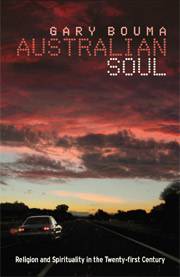Book contents
- Frontmatter
- Contents
- Tables and Figures
- Preface
- Acknowledgements
- 1 Introduction
- 2 Qualities of Australian religion and spirituality
- 3 Quantities of Australian religion and spirituality
- 4 Spirituality and cultural change
- 5 The changing social location of religion and spirituality
- 6 The mainstream: From Christendom to comfortable on the margins
- 7 Religion and spirituality respond to change
- 8 Religion, spirituality and Australian social policy
- 9 Signs of hope in the twenty-first century
- Further reading
- References
- Index
4 - Spirituality and cultural change
Published online by Cambridge University Press: 05 June 2012
- Frontmatter
- Contents
- Tables and Figures
- Preface
- Acknowledgements
- 1 Introduction
- 2 Qualities of Australian religion and spirituality
- 3 Quantities of Australian religion and spirituality
- 4 Spirituality and cultural change
- 5 The changing social location of religion and spirituality
- 6 The mainstream: From Christendom to comfortable on the margins
- 7 Religion and spirituality respond to change
- 8 Religion, spirituality and Australian social policy
- 9 Signs of hope in the twenty-first century
- Further reading
- References
- Index
Summary
An examination of both the qualitative and the quantitative aspects of Australia's religious and spiritual life shows that they have a healthy future. While continuities of practice will remain, there will be many changes. The degree of change will reflect the continued influence of the Australian religious institution, the impact of changes in Australian culture and social structure and the responses of Australian religious groups to each other and their changing situation. At the opening of the twenty-first century several cultural factors are changing the way Australians are religious and the way they give expression to their spirituality.
The cultural shift from rationality to experience
A cultural macro-trend from the rational to the experiential and emotional as the dominant forms of authority is shaping the ways Australians express their spirituality. This shift in emphasis has been emerging for a long time. The transition is far from absolute since each of the three forms of authority and transcendence – tradition, reason and experience/emotion – plays a role in any period of history. But it is also true that in each era one form will be more dominant.
To exercise authority is to appeal to some transcendent principle or arbiter to legitimate decisions, policy and action. In the exercise of traditional authority appeal is made to position – ‘she is the queen’, ‘he is the pope’ or ‘she is the vice-chancellor’ – and therefore has the authority to act, declare what is to be believed and must be obeyed.
- Type
- Chapter
- Information
- Australian SoulReligion and Spirituality in the 21st Century, pp. 86 - 105Publisher: Cambridge University PressPrint publication year: 2006



